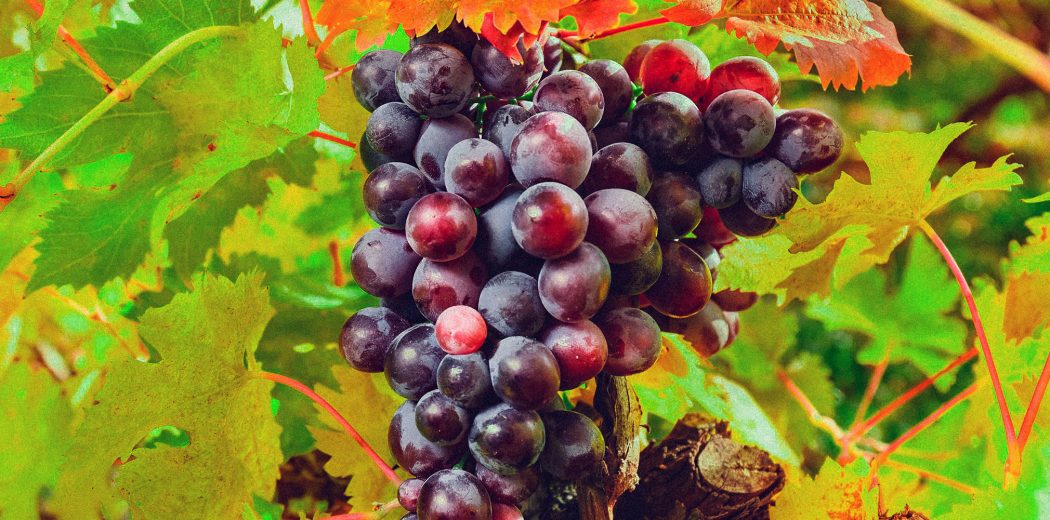A grape by any other name would taste as sweet. Or, at least, that’s the case with Black Muscat, a black-skinned grape that is also known by monikers including Muscat Hamburg, Golden Hamburg, Black Hamburg, Muscat de Hambourg and Muscat Gamburgskiy, depending on who you’re talking to. We’re not kidding. Black Muscat has over 30 different synonyms. And there’s a good reason. The varietal, though often produced as a table wine, is a sweet, friendly dessert wine that has earned favor in countries spanning from the United States to Italy to Russia.
Even its grapes are universally likable. Black Muscat fruit is large and swollen, boasting a delicious floral aroma that might encourage you to eat them by the handful – we recommend pairing them with a side of cheese. Though Muscat vines are found the world over, we have R. Snow of Bedfordshire, England to thank for introducing these particular vines to our lives. In 1850, he created the varietal by crossing the Schiava Grossa – or Trollinger, a German/Italian red – and Muscat of Alexandria, a white wine grape considered to be one of the oldest unmodified varietals around.
In France, Black Muscat answers to two higher callings: that of being a dessert wine, and that of being a table grape. Production is highly regulated by the same rules that monitor the production of Champagne – if the French is that invested in it, you know it’s going to be good. Therefore, there are very specific qualifications for the size and weight of each bunch.
Meanwhile, in Eastern Europe – think Serbia and Macedonia – it’s produced as a light, dry red. It’s also starting to gain traction in China and Japan as part of table blends, and is so obliging that it can even be ripened in England.
US-based drinkers can find it from Virginia, Oregon, Texas, New York and Washington. You can also head up north to grab a bottle from Canada’s Vancouver Island. The grapes tend to thrive in California’s temperate climate, yielding traditional notes of rose and lychee, For something a little different, look to New York, where the grapes are used to make ice wine.
In comparison to other Muscats, like the better known Muscat Blanc à Petit Grains or Muscat Ottonel, Black Muscat isn’t a very complex wine. You can expect something on the lighter, less acidic side, and be sure to plan your food accordingly.
More neutral pairings will draw out the wine’s notes without overpowering it – we recommend berry tarts, crème brûlée, scallops and cheese plates (and really, what more do you need than wine and cheese?). Already planning your Valentine’s Day wine selection? You’ll struggle to find a better friend for chocolate than Black Muscat.








